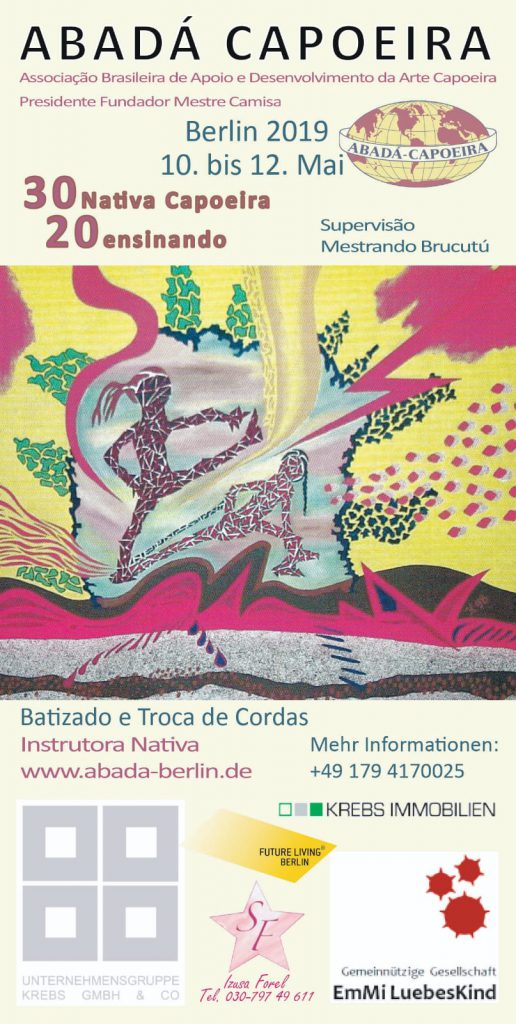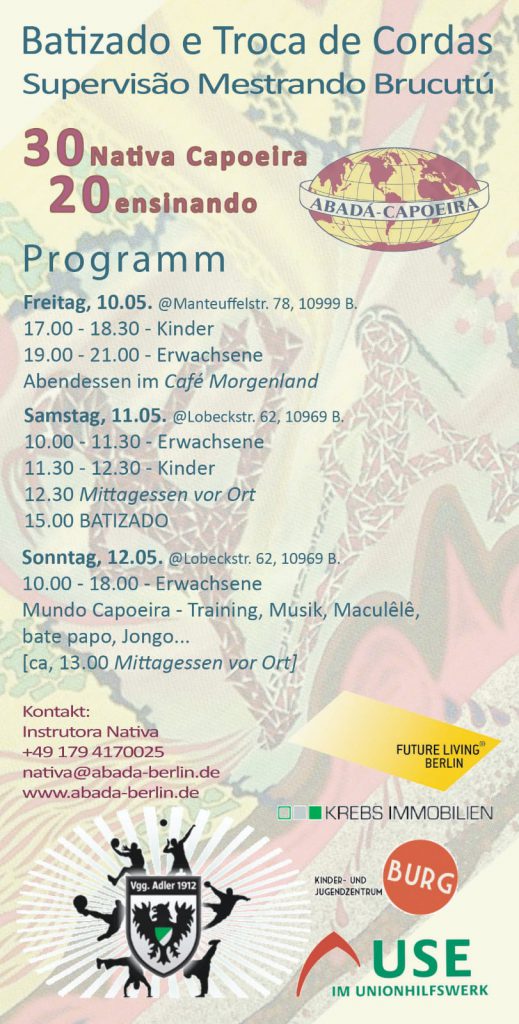Capoeira is a sport incorporating fight, dance, play and acrobatics combined with philosophical aspects. Capoeira is Brazilian culture and folklore.
Der Inhalt ist derzeit nicht verfügbar
Dies passiert, wenn der Eigentümer den Beitrag nur mit einer kleinen Personengruppe teilt oder er geändert hat, wer ihn sehen kann. Es kann auch sein, dass der Content inzwischen gelöscht wurde.Originating from slavery, Capoeira developed to a fascinating body language. Where intuition, improvisation and creativity are in demand, the extremes meet: fight and play, aggressiveness and poesy. Capoeira is an idea of the colored man in the fight for freedom as an answer towards a culture of suppression and harm.
It is assumed that Capoeira was developed by slaves from Angola who were brought to Brazil since the beginning of the 16th century. Since the slaveholders forbid the practice of fighting of any kind, the training of body and mind for battle situation was given a dance-like character. Angolan dances, rituals and probably fights formed a basis for this development. In the 17th century, escaped slaves founded the Quilombos (autonomous domains hidden in the forest) and fought for decades with their pursuers with Capoeira as strategy and direct fighting technique.
After the abolition of slavery, practicing Capoeira was still prohibited which let to riots and persecution. Despite the prohibition, Mestre Bimba and Mestre Pastinha founded the first Capoeira schools in Salvador. Bimba created Capoeira Regional and convinced the rulers of the cultural value of Capoeira. Pastinha founded the first Capoeira Angola academy about the same time. Both lived in Salvador and their academies were situated at Pelourinho, the nowadays history old town. Capoeira Angola still today is orientated closely to traditions, while Capoeira Regional forms a modern, changing version. Mestre Bimba already observed movement patterns in other martial arts and combined this with traditional Capoeira.
Jão Grande (New York) andJão Pequeno (Salvador) are the most worth mentioning masters of the school of Pastinha who are still alive. Both dedicated their lives to Capoeira and represent the old guard of Capoeira in the world.

